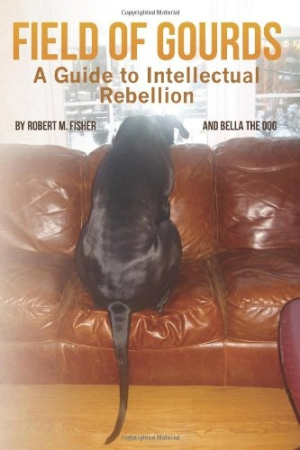Field of Gourds
A Guide to Intellectual Rebellion
A crop of intellectual odds and ends amounts to an engaging, challenging field of ideas.
At first blush, a “field of gourds,” writes Robert M. Fisher in this thought-provoking philosophical survey, appears “pretty useless.” It’s a crop that defies expectations (since you can’t eat it), which Fisher likens to a fresh thought that doesn’t seem to mesh with conventional wisdom. So what can you do with the intriguing intellectual odds and ends you have grown? Field of Gourds: A Guide to Intellectual Rebellion is Fisher’s answer: you can do many, many things.
Fisher has been collecting bits and pieces of his thoughts on everything from religion to science for years. Here, the Duke University doctor of philosophy and Harvard Law School graduate brings his ideas together in a series of explorations that will make readers feel like they’re participating in a college seminar with an engaging and challenging professor.
To truly understand a thing, whether a single plant or an entire field of study, Fisher suggests one approach it from new angles and define it from the ground up. Indeed, that’s the way to approach Fisher’s writing, which resists easy categorization. He’s writing about not only science and philosophy but also dance and theater, with a substantial dash of humor in the form of asides from his faithful companion, Bella. The black Labrador retriever is pictured on the cover as a hulking hind end making a significant dent in a leather couch.
Fisher is more than a little contrary, and Bella is too. Her imagined contributions bring some lofty ponderings quickly down to earth. Bella says snarky things that the narrator won’t, such as when she notes that economists are a lot like parrots—ask them any question and get the same answer: “Squawk! Squawk! Supply-and-Demand. Supply-and-Demand.”
Fisher calls his ideas “radical,” meaning they drill down to the essential truths behind our collectively accepted beliefs. He takes apart something as basic as scientific inquiry and questions our assumptions. Science provides proof, right? Not so fast, says Fisher. Through a series of logical explanations and compelling examples, Fisher illuminates the true strength of science: it’s a system for developing greater understanding rather than a method of providing ultimate proof.
In lesser hands, this material could be a bit dense, but Fisher’s genuine enthusiasm for his subject is infectious. When he gets excited about applying scientific inquiry to a dance performance, for instance, readers will be curious too. Fisher capably shows the parallels between dancers who adjust their presentations in response to feedback and scientists who refine their experiments in response to the resulting data. In both cases, the feedback loop is not about perfection, but about getting progressively closer to one’s goals, whether on the stage or in the lab.
The book is thick with academic knowledge and language, but Fisher is an engaging and patient tutor. He doesn’t hand out the answers, but he’s also not showing off. He’s truly a teacher, and Field of Gourds would provide an excellent framework for college philosophy courses. Students can work through the information and thought exercises Fisher presents in each chapter, and they could gradually develop a new way of learning that is based on inquiry and logic rather than received wisdom.
Reviewed by
Sheila M. Trask
Disclosure: This article is not an endorsement, but a review. The publisher of this book provided free copies of the book and paid a small fee to have their book reviewed by a professional reviewer. Foreword Reviews and Clarion Reviews make no guarantee that the publisher will receive a positive review. Foreword Magazine, Inc. is disclosing this in accordance with the Federal Trade Commission’s 16 CFR, Part 255.

